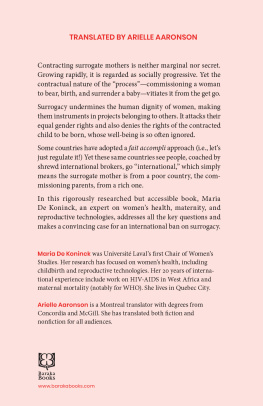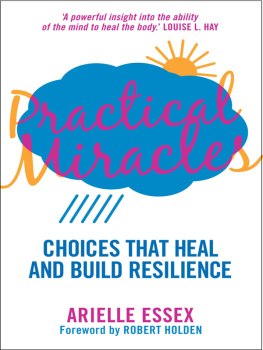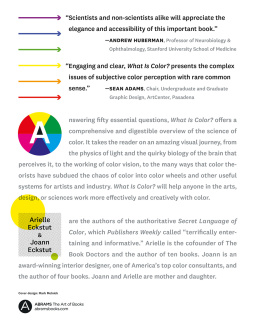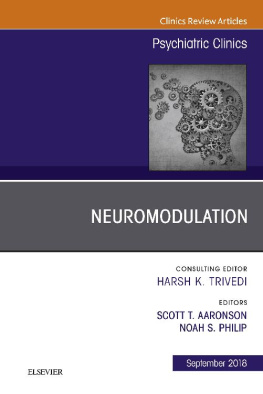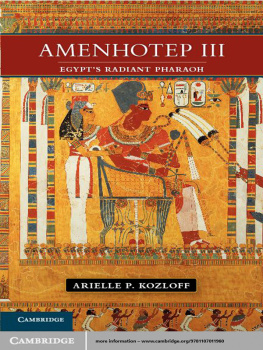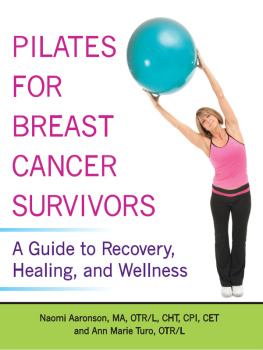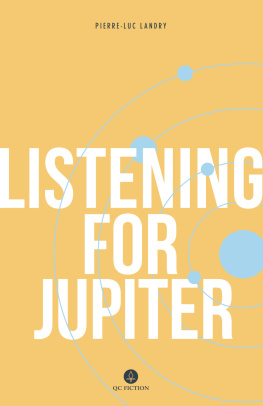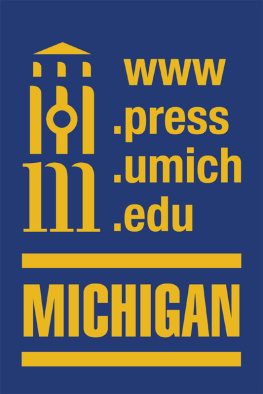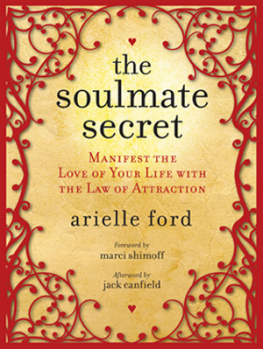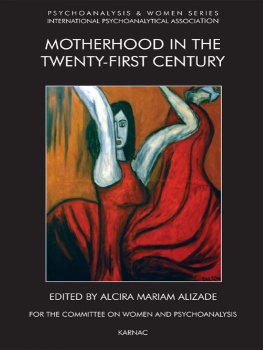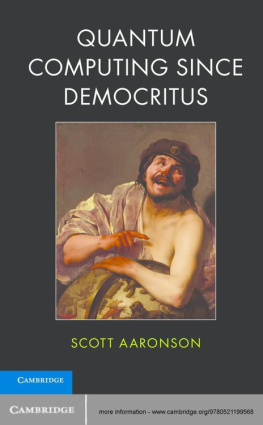Arielle Aaronson - Stolen Motherhood
Here you can read online Arielle Aaronson - Stolen Motherhood full text of the book (entire story) in english for free. Download pdf and epub, get meaning, cover and reviews about this ebook. publisher: Baraka Books, genre: Home and family. Description of the work, (preface) as well as reviews are available. Best literature library LitArk.com created for fans of good reading and offers a wide selection of genres:
Romance novel
Science fiction
Adventure
Detective
Science
History
Home and family
Prose
Art
Politics
Computer
Non-fiction
Religion
Business
Children
Humor
Choose a favorite category and find really read worthwhile books. Enjoy immersion in the world of imagination, feel the emotions of the characters or learn something new for yourself, make an fascinating discovery.
- Book:Stolen Motherhood
- Author:
- Publisher:Baraka Books
- Genre:
- Rating:3 / 5
- Favourites:Add to favourites
- Your mark:
- 60
- 1
- 2
- 3
- 4
- 5
Stolen Motherhood: summary, description and annotation
We offer to read an annotation, description, summary or preface (depends on what the author of the book "Stolen Motherhood" wrote himself). If you haven't found the necessary information about the book — write in the comments, we will try to find it.
Stolen Motherhood — read online for free the complete book (whole text) full work
Below is the text of the book, divided by pages. System saving the place of the last page read, allows you to conveniently read the book "Stolen Motherhood" online for free, without having to search again every time where you left off. Put a bookmark, and you can go to the page where you finished reading at any time.
Font size:
Interval:
Bookmark:
To all the women who, in the course of research
I have participated in, have generously
agreed to share their experience of maternity.
T he first successful in vitro fertilization took place just over forty years agothe blink of an eye in the history of humanity. Yet this technique has made such rapid advances that today, it enables individuals or couples hoping to reproduce to have recourse to a third person for the duration of a pregnancy.
Using surrogate mothers is no longer a marginal practice, nor does it take place in secrecy; it is a growing phenomenon, though there has been no informed debate on the potential social impacts of its trivialization as a means of reproductive intervention. Nevertheless, in our society and elsewhere, discourse has evolved to normalize surrogacy, even touting it as social progress. This discourse is structured to discredit those who question the practice, painting them as resistant to change and progress, blind to todays realities.
To be truly modern, a society should rely on knowledge acquired from the social sciences (sociology, anthropology, economics, psychology), philosophy, law, medicine, psychiatry, and neuroscience, among other fields, to examine advancements in surrogacy, grasp its components, and evaluate its consequences.
What exactly is the surrogacy process? It is a way to permit people to reproduce by commissioning a woman to carry a child and requiring her to surrender it to someone else after giving birth. In most cases, she withdraws from the childs life completely. This method represents a fundamental change in our understanding and experience of reproduction, since it cannot be likened to other customs of child circulation observed in so-called traditional societies, as we will discuss later on.
Surrogacy is not a biomedical advance independent of social relationships. In challenging the definition of motherhood by dividing and sharing it between different women, surrogacy acts on the meaning of motherhood as a feminine experience. This is why contemplating the meaning of this process in reference to the experience of motherhood forces a broader reflection on the nature of gender relations, the meaning of human reproduction, and the status of the child within the society into which it is born.
Only humans can envision a future; they are the only beings that are conscious of their mortality. It follows that they are also the only beings to give meaning to the possibility of prolonging their memory through children. This extension, recognized socially as filiation, is defined and framed across all societies. As cultural constructs, definitions and frameworks differ from one society to another.
In nature, reproduction happens when two people come together and create a unique third: a profound experience of otherness. Yet once the child is born, the transmission of knowledge, culture, or belonging within a social group is not always performed by these two biological parents. Various traditions or events can account for why, after birth, a child may be entrusted to others who will educate it and serve as familyone that does not include the natural parents.
Who is my mother? Who is my father? Who are my grandparents, sisters, brothers, and the members of my extended family? These are universal human markers, points of reference that, ideally, everyone should have. They enable an individual to forge an identity, and their absence presents a path often riddled with obstacles, as evidenced by the efforts of adopted children to find their biological parents. Accounts of children who are adopted into loving families, but who nevertheless wish to meet their biological parents, confirm the complexity of developing an identity. Several such accounts were heard in Quebec in 2017 during the debate on the Act to amend the Civil Code and other legislative provisions concerning adoption and the disclosure of information.
Until recently, human reproduction was never considered to be a matter of technique or process. It has only become so with the advent of medically assisted procreation, also called assisted human reproduction (AHR), and especially with the use of surrogate mothers, which introduces a new element when it comes to designating caretakers for the newborn child. This process involves an arrangement prior to conception that names someone other than the birth mother to be responsible for the child. The surrogate knows, even before carrying the child, that she will not take care of it once it is born and, contrary to what has been observed in so-called traditional societies, commits to this not in a communal context, but rather in a context defined by the exercise of individual freedoms.
Wanting to procreate is a natural human desire. It ensures the survival of the species and, on an individual level, can be seen as a way to extend oneself and carry ones legacy forward. The egocentric aspect of reproduction may be one factor in the desire to self-perpetuate through a child, but it is far from the only one. Furthermore, the scope of this aspect varies greatly between cultures.
In some environments, even today, procreating is a social duty: it is an expectation primarily aimed at women through the implementation of social controls, including potential penalties for those who fail to conform. In others, procreating is an individual choice. Similarly, the responsibility of caring for a child can be assumed or supported by a community or can be essentially entrusted to the parents.
Human reproduction cannot be discussed without taking into account a set of psychological, social, cultural, and economic factors, among others. These raise issues that deserve consideration if we want to understand how surrogacy practices evolve.
This essay aims to define, as much as possible, how normalizing surrogacy might transform human relations, including gender relations, by jeopardizing human dignitya defining principle of social organization.
It certainly isnt my goal to cover all of these aspects. Yet I feel it is important to speak out now about commissioning women to carry children according to prior arrangements requiring them to surrender their children to the commissioning parents and renounce motherhood. Much of the reflection and research underpinning my arguments is empirical. Studies concerned with family planning, pregnancy, childbirth, and motherhood have helped me document these different experiences here and elsewhere. I consider this my duty on behalf of all the women who have recounted their experiences of motherhood over the years, as part of various studies I have either led or participated in. I cannot remain silent when faced with the absence of sound debate, attempts to tarnish sentiments as noble as altruism, efforts to appropriate women under the guise of progress, and lack of regard for childrens wellbeing. I believe it is crucial to speak out, to offer a vision that is different from the one centred on the needs of individuals and couples who wish to become parents within a context where the proposed solution has not been analyzed from the point of view of its human and social consequences. My focus is largely on motherhood and the childrens future.
Drawing on knowledge acquired across several disciplines, I consider the issue from three angles: the feminist angle, including an analysis of surrogacy and its development in the context of gender relations; the sociological angle, in the context of human rights and our lives within society; and the ethical angle, that of a system of shared valuesmany of which are upheld by laws, charters, and regulationsand more specifically, that of respect for human dignity.
.Some might claim that this debate occurred in Canada during the Royal Commission on New Reproductive Technologies, established in 1989, whose 1993 report led to a 2004 law. The context at that time was very different from that of today, and numerous resignations revealed that the Commissions debates were confrontational in nature.
Font size:
Interval:
Bookmark:
Similar books «Stolen Motherhood»
Look at similar books to Stolen Motherhood. We have selected literature similar in name and meaning in the hope of providing readers with more options to find new, interesting, not yet read works.
Discussion, reviews of the book Stolen Motherhood and just readers' own opinions. Leave your comments, write what you think about the work, its meaning or the main characters. Specify what exactly you liked and what you didn't like, and why you think so.

